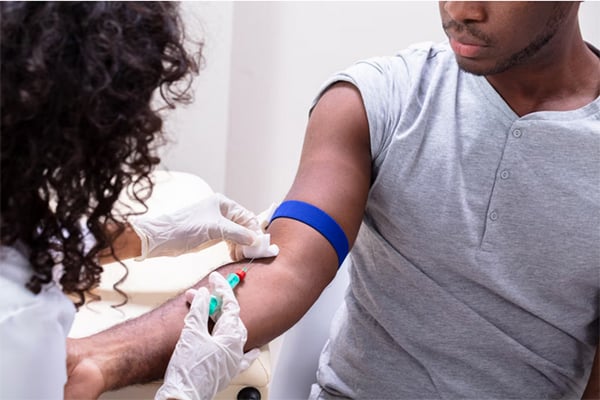Government urged to address Hepatitis B drug shortage

Mr Kenneth Kabagambe, Executive Director of the National Organization for People Living with Hepatitis B (NOPLHB), addressing the press on the statement on the current drugs stock out of hepatitis B in Uganda at the association offices Makerere. PHOTO/David Walugembe
What you need to know:
Speaking at a press conference at the NOPLHB offices in Makerere, Mr. Kabagambe urged the government and the Ministry of Health to ensure that health facilities are adequately stocked with Hepatitis B medications
Mr Kenneth Kabagambe, Executive Director of the National Organization for People Living with Hepatitis B (NOPLHB), has called on the government to resolve the ongoing shortage of Hepatitis B medications. National Medical Stores (NMS), however, stated that drug distribution will commence once a verifiable list of patients is received.
“The ongoing stockout of Hepatitis B medicines in public health facilities, coupled with the concerning practice of substituting them with combined HIV drugs, is a serious public health issue in Uganda. Over 1.8 million people are living with the disease, and access to proper medication is not just a matter of convenience; it is a matter of survival,” Mr Kabagambe said.
He further highlighted that the persistent drug shortage points to deeper systemic issues within the healthcare system that need urgent attention. He expressed concern over patients being forced to take drugs not explicitly designed for their condition, thereby putting their lives at risk.
“These HIV drugs, while effective for HIV, may not adequately suppress Hepatitis B virus replication in the liver, potentially leading to increased liver damage. Furthermore, long-term use of these drugs without proper medical supervision can result in adverse effects, including drug resistance, toxicities, and complications from drug interactions,” Mr. Kabagambe explained.
He emphasized that this practice compromises the health and safety of Hepatitis B patients, who deserve access to the appropriate medications needed to effectively manage their condition.
Speaking at a press conference at the NOPLHB offices in Makerere, Mr. Kabagambe urged the government and the Ministry of Health to ensure that health facilities are adequately stocked with Hepatitis B medications. He also called for clear guidance for patients currently using combined HIV drugs for Hepatitis B, and for increased funding to improve healthcare delivery and public sensitization efforts.
Sheila Nduhukire, Principal Public Relations Officer at NMS, responsible for procuring, storing, and distributing medicines and medical supplies to government health facilities, stated that funding for Hepatitis B treatment is available and that the medicines are locally manufactured. She said NMS is awaiting updated information on patient numbers before dispatching the drugs.
“NMS is ready to distribute the medicine once we receive a verifiable list of patients and their locations for this financial year,” Nduhukire said.
She also pointed out that there is currently a global shortage of Hepatitis B vaccines, which presents a significant challenge for Uganda. “The Serum Institute of India, the world’s largest manufacturer of these vaccines, is upgrading its production line. Both WHO and UNICEF have confirmed the unavailability of the vaccines. We have been assured that Hepatitis B vaccines will be available by December 2024,” she added.
Dr Diana Atwine, Permanent Secretary of the Ministry of Health, confirmed that the ministry has embarked on an integrated approach to providing comprehensive care for all infectious diseases, including Hepatitis B.




